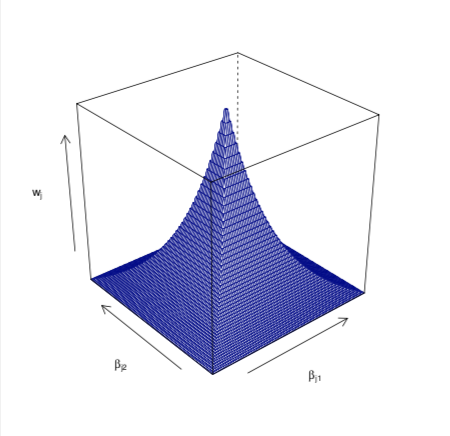Abstract
Environmental health studies are increasingly measuring multiple pollutants to characterize the joint health effects attributable to exposure mixtures. However, the underlying dose-response relationship between toxicants and health outcomes of interest may be highly nonlinear, with possible nonlinear interaction effects. Existing penalized regression methods that account for exposure interactions either cannot accommodate nonlinear interactions while maintaining strong heredity or are computationally unstable in applications with limited sample size. In this article, we propose a general shrinkage and selection framework to identify noteworthy nonlinear main and interaction effects among a set of exposures. We design the hierarchical integrative group least absolute shrinkage and selection operator (HiGLASSO) to (a) impose strong heredity constraints on two-way interaction effects (hierarchical), (b) incorporate adaptive weights without necessitating initial coefficient estimates (integrative), and (c) induce sparsity for variable selection while respecting group structure (group LASSO). We prove sparsistency of the proposed method and apply HiGLASSO to an environmental toxicants dataset from the LIFECODES birth cohort, where the investigators are interested in understanding the joint effects of 21 urinary toxicant biomarkers on urinary 8-isoprostane, a measure of oxidative stress. An implementation of HiGLASSO is available in the higlasso R package, accessible through the comprehensive R archive network.
Keywords
Environmental exposures; Group LASSO; Interaction; Nonlinearity; Strong heredity.
